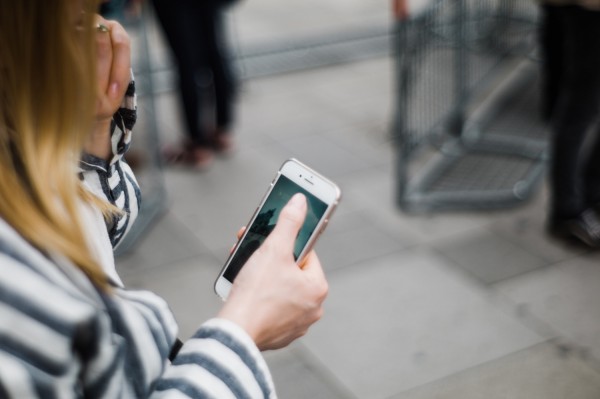Can’t Survive a Day Without Your Phone? You May Be Suffering From ‘Nomophobia’

The term ‘nomophobia’ is derived from the phrase ‘no mobile phone phobia,’ and is described as a condition in an individual who is afraid of not having his phone.
A new study recently found fear of being detached to the mobile phone, also known as "nomophobia," is highly common among young individuals, specifically college students, and is linked to poor sleep health.
Initial findings present that 89 percent of a group of college students studied had a "moderate of severe nomophobia."
Greater or more severe conditions were considerably linked to greater sleepiness at daytime and more behaviors related to poor sleep quality.
According to Arkansas-based Hendrix College psychology professor, Jennifer Peszka, Ph.D., they found that college students experiencing more nomophobia were more likely to suffer from "sleepiness and poor sleep hygiene," like long naps and erratic "bed and wake times."
ALSO READ: Doctor-Turned-Patient: This Cleveland Clinic Physician Is a Massive Heart Attack Survivor
'Nomophobia' Linked to Poor Sleep
While Professor Peszka, also the lead author of this study, anticipated that this particular condition would be typical among the participating college students, she was surprised by its high predominance.
The psychology professor said since their study proposes a link "between nomophobia and poorer sleep," it is interesting to find what effects would transpire if the severity of nomophobia continues to rise.
The research involved 327 college students with an average age of 20 years. Respondents were able to complete several questionnaires.
Nomophobia Questionnaire is one of the sets the respondents completed along with the Epworth Sleepiness and the Sleep Hygiene Index questionnaires.
Limit in Phone Use to Improve Sleep Behavior
The lead author noted as well that one common recommendation for the improvement of sleep behavior is to limit the use of phone "before and during bedtime."
Nonetheless, she also noted that such a proposal could worsen bedtime anxiety and disturb sleep for individuals with nomophobia instead of boosting it.
Peszka explained such a recommendation to reduce the use of s phone during bedtime, which is intended for the improvement of sleep and appears somewhat upfront, might need some adjustments or considerations for these young people.
DON'T MISS THIS: Brain Scans of Children Hint Why Some Are Aggressive and Antisocial
What You Need to Know About Nomophobia
The term 'nomophobia' is derived from the phrase "no mobile phone phobia." It is described as a condition in an individual who is afraid of not having his phone.
Previous studies have suggested that this phobia is turning out to be more prevalent. 2019 researchTrusted Source indicates that more than 50 percent of British people with a phone, in 2008, felt worried each time they did not have their phone with them, had an empty battery, or no phone signal. Meanwhile, no scientific research has been reported on statistics in the United States.
Furthermore, several studies present both emotional and physical symptoms of nomophobia. Among the emotional indications are worry or panic when thinking about being unable to use the phone, agitation if there is a need to put the phone down, and panic if the phone cannot be found.
Physical symptoms may include difficulty in normal breathing, increased sweating, tightness in the chest, rapid heartbeat, shaking or trembling and dizziness, or fainting.
The research abstract of the work of Professor Peszka and her team recently came out in Sleep journal's online supplement.
IN CASE YOU MISSED THIS: Why Stress Makes One Overeat or Not Eat at All, and How to Overcome It
Check out more news and information on Nomophobia on MD News Daily.
Aug 29, 2020 07:30 AM EDT





